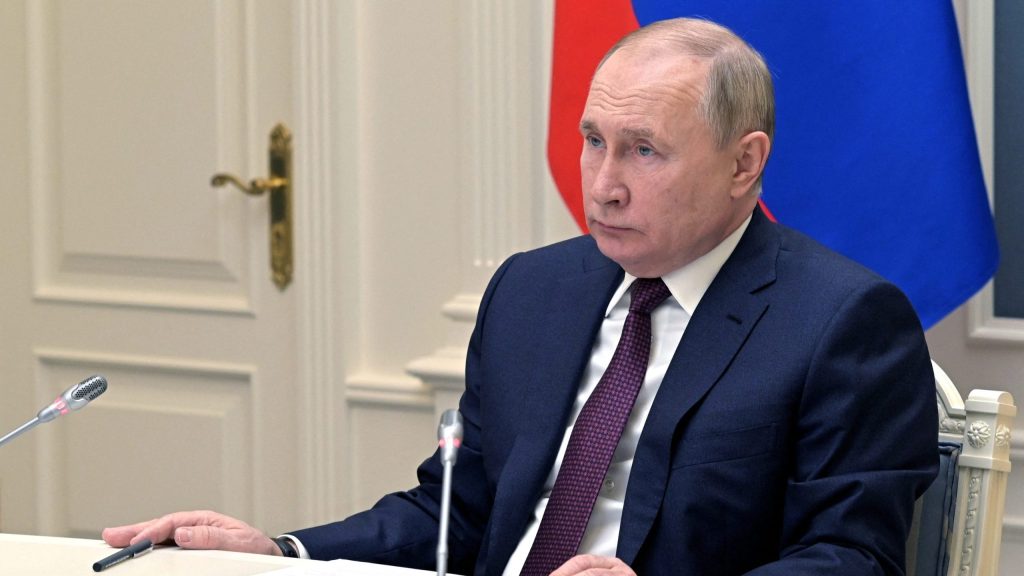Putin Signals Possible Shift in Nuclear Policy Amid Ukraine Conflict
3 min read
The Russian president has previously threatened the use of nuclear arms but his new proposal expands those scenarios.

The Russian president has previously threatened the use of nuclear arms but his new proposal expands those scenarios.
In a significant escalation of rhetoric, Vladimir Putin has indicated that Russia might redefine the conditions under which it would use its nuclear arsenal, particularly in the context of the ongoing war in Ukraine. During a speech on Wednesday night, the Russian president stated that an attack by a non-nuclear state, supported by a nuclear-armed nation, would be perceived as a “joint attack” on Russia. This statement raises concerns about the potential for nuclear engagement in the conflict.
Putin’s comments come as Ukraine continues to seek military support from Western nations, including long-range missiles capable of striking deep into Russian territory. Ukrainian President Volodymyr Zelensky is currently in the United States to discuss these requests with President Joe Biden, underscoring the urgency of the situation.
Ukraine has made significant territorial advances this year and aims to target Russian military bases it believes are launching missiles into Ukrainian cities. In response to Putin’s remarks, Andriy Yermak, Zelensky’s chief of staff, characterized Russia’s reliance on nuclear threats as a form of “nuclear blackmail” intended to intimidate the international community.
Historically, Putin has employed nuclear threats as a strategy to deter Western support for Ukraine, dismissing such warnings as mere “nuclear sabre-rattling.” However, these latest comments suggest a more formal reconsideration of Russia’s nuclear doctrine. Following a meeting with his Security Council, Putin announced plans for a radical expansion of the circumstances under which Russia might resort to nuclear weapons.
He emphasized that any aggression against Russia by a non-nuclear state, if supported by a nuclear power, would warrant a serious response. “It is proposed that aggression against Russia by any non-nuclear state, but with the participation or support of a nuclear state, be considered as their joint attack on the Russian Federation,” Putin stated. He underscored that the nuclear arsenal is vital for the security of Russia and its citizens.
This shift in nuclear policy echoes longstanding principles of deterrence, which have governed international relations since World War II. Deterrence is based on the premise that any significant nuclear exchange would lead to mutually assured destruction, thereby preventing large-scale conflicts. Yet, Putin’s remarks signal a potential move toward a more aggressive stance, particularly with respect to tactical nuclear weapons—smaller warheads designed for limited use without causing widespread fallout.
In June, Putin had warned European nations supporting Ukraine that Russia possesses far more tactical nuclear weapons than are present on the continent, even accounting for American deployments. He noted, “Europe does not have a developed early warning system. In this sense, they are more or less defenseless.” These comments hinted at possible changes to Russia’s nuclear strategy, which outlines the conditions for deploying nuclear weapons.
China, a key ally of Russia, has also urged caution. Reports indicate that President Xi Jinping has advised Putin against resorting to nuclear weapons, emphasizing the need for stability in international relations. This adds another layer of complexity to an already volatile situation.
The implications of Putin’s proposed changes to nuclear policy are profound. The rhetoric could not only heighten tensions between Russia and NATO countries but also impact global nuclear non-proliferation efforts. Many observers fear that redefining the conditions for nuclear use may lower the threshold for actual deployment, increasing the risk of catastrophic consequences.
As Ukraine continues to press for military support and escalates its operations against Russian positions, the international community watches closely. The potential for miscalculation or misinterpretation of actions by either side raises the stakes significantly.
The ongoing conflict in Ukraine, coupled with these new declarations from Moscow, underscores the precarious nature of global security in an era where nuclear weapons remain a focal point of international relations. The situation is a stark reminder of the need for dialogue and diplomacy, even as the specter of nuclear conflict looms over Europe.
As developments unfold, the world remains on edge, hoping that the path of diplomacy prevails over threats and hostility.